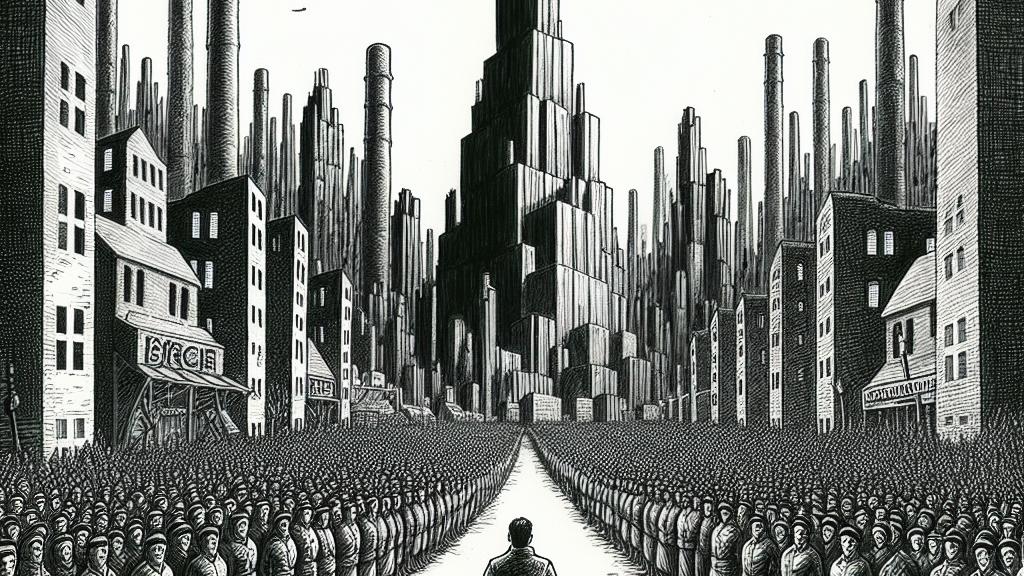Kicking Orwell: The Feminist Reimagining That Missed the Mark!
Overview
- This article provides an incisive critique of a newly minted novel that ambitiously attempts to retell Orwell's acclaimed '1984' from a feminist perspective.
- It argues that this retelling lack crucial depth and fails to engage thoughtfully with the grim undertones of Orwell's original work.
- Ultimately, the critique asserts that the novel represents a shallow feminist reinterpretation, which overlooks the complexities of both totalitarianism and gender.

The Setting and Premise
Imagine stepping into the bleak, oppressive world of George Orwell's '1984', a dystopian landscape that first captivated audiences in 1949 in the UK. This new novel seeks to shine a light on Julia, a character previously relegated to the shadows, positioning her as the heroine in a saga of rebellion against an all-powerful regime. However, this retelling quickly falters; instead of enriching the foundational themes of fear and oppression, it flattens the narrative into a cliched tale of triumph. Like a starry sky diminished by city lights, this depiction obscures the deeper meanings prevalent in Orwell's original work. Rather than engaging with the multifaceted struggles of humanity, it risks treating Julia's fight as a simplistic battle, losing sight of the complexity that is a hallmark of Orwell’s poignant critique of totalitarian power.
Lack of Depth in the New Narrative
While the intent to portray Julia as a dynamic force of change is palpable, the execution falls flat, suggesting that she manipulates events from behind the scenes. This portrayal reduces her from a participant in the struggle against oppression to a mere puppet master pulling strings, thus trivializing the genuine hardships experienced by all characters caught in Orwell's grim reality. Picture a puppet show where one character overshadows the rest, leaving the audience blind to the collective plight surrounding them. This alteration not only distorts the essence of Julia's character but also neglects the intricacies of resistance, reducing the nuanced, painful realities of life under surveillance to a farcical storyline. In doing so, it misses the chance to capture the true spirit of rebellion against oppression, ultimately diminishing the narrative’s impact.
Criticism of Superficial Feminism
The review sheds light on a broader trend: the troubling pattern of using feminist narratives to simplify complex stories. By casting Julia as the unequivocal savior and sidelining male characters into foolish roles, the story strips away layers of meaningful interaction fostered by adversity. It’s akin to making a delicious cake but only icing the surface; without substance beneath, the cake collapses under scrutiny. Whether in Hollywood franchises like 'Star Wars' or 'Ghostbusters', we often see this inclination to reuse concepts with a superficial twist, ultimately failing to engage with the deeper, often uncomfortable questions these original stories pose. The critique underscores a pressing need for narratives that authentically reflect the richness of human experiences, intertwining gender dynamics in a way that resonates at a deeper level. It calls for storytelling that digs beneath the surface, embracing complexity while showcasing strong female characters not just as heroes in isolation, but as participants in a broader, shared human struggle.

Loading...